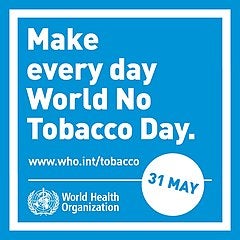Health and Mind: World No Tobacco Day is May 31
Published 3:30 pm Wednesday, May 24, 2023
|
Getting your Trinity Audio player ready...
|
By Cara O’Neill
Clark County Health Department
Nicotine, a chemical derived from the tobacco plant, has been used for thousands of years, likely beginning with Native Americans who chewed and smoked tobacco leaves. Today we have many different tobacco products, from combustible cigarettes to chewing tobacco to modern, electronic vaping devices. However, all these products contain the addictive chemical nicotine.
Nicotine is absorbed rapidly into a user’s bloodstream, can reach the brain in as little as ten seconds, and binds to receptors in the brain, producing dopamine release. Dopamine is a chemical naturally produced in the brain that makes a person feel happy and relaxed. It is released when a person does something enjoyable, such as eating good food, listening to music, or being with loved ones. When dopamine is released artificially through a substance such as nicotine, it can become more difficult for the brain to produce it through natural causes.
Due to the addictive nature of nicotine, quitting tobacco products is extremely difficult for most users. Only around five percent of tobacco users can quit without using any aid. However, there are various support tools for those looking to quit tobacco. Nicotine Replacement Therapy (NRT) provides a low dose of nicotine to users trying to quit tobacco to help them slowly wean off the drug. NRT can be purchased over the counter by adults in the form of patches, chewing gum, or lozenges. The patches can provide a steady baseline of nicotine to a person, while the gum and lozenges offer a brief burst of nicotine when someone has a craving or withdrawal symptom. Multiple forms of NRT can be used in conjunction with one another, and studies have actually shown this to be more effective than a single form’s use.
Two medications are also available for individuals attempting to quit smoking. Varenicline (Chantix) and bupropion (Zyban, Wellbutrin) both help manage withdrawal symptoms and can lessen cravings for nicotine by mimicking the impact nicotine has or by inhibiting the effects of nicotine, making a person enjoy tobacco use less. Both of these medications are available by prescription only and should be taken under the supervision of a medical provider.
Lastly, support groups or one-on-one cessation support have also been shown to improve quit rates. Some research has shown that individuals who participate in a group support program for quitting tobacco had double (or more!) chances of staying quit at six months after the initial quit date.
The Clark County Health Department will host a Freedom from Smoking program to assist those interested in quitting tobacco. The program started May 23 and nicotine replacement methods will be provided to participants in the class. For more information or to register for the class please get in touch with the health department at kayla.walton@cchdky.org or 859-744-1488.






